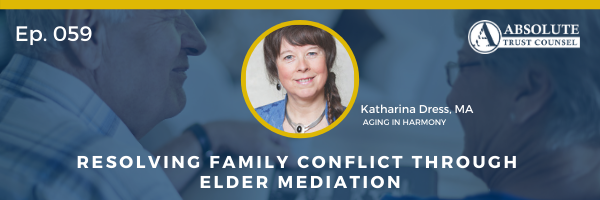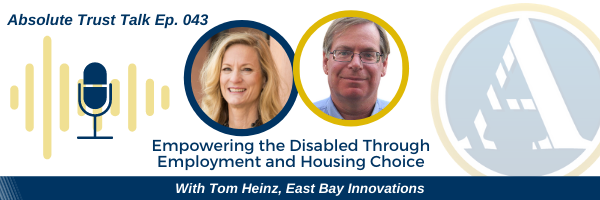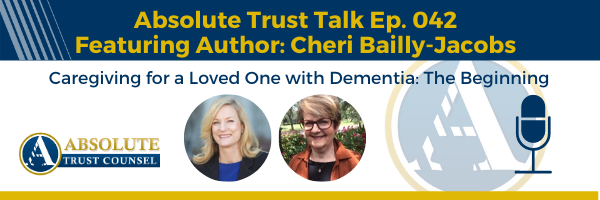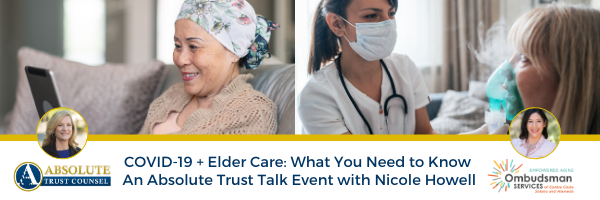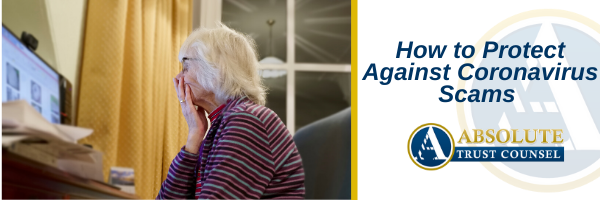Big Three from Episode #059: Elder mediation can help families reach agreements about legal, financial, and care planning for their aging loved ones and their estate. Even if you think a conflicting party will not agree to mediation, it’s worth getting in touch with a mediator to find ways to engage the parties in communication. The ultimate goal is to…
